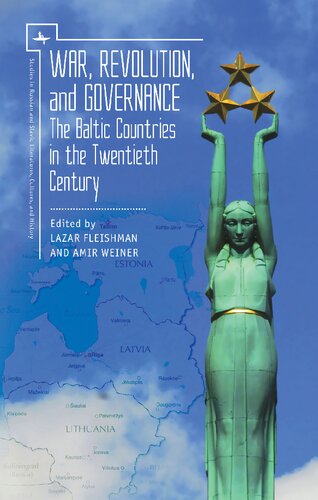

Most ebook files are in PDF format, so you can easily read them using various software such as Foxit Reader or directly on the Google Chrome browser.
Some ebook files are released by publishers in other formats such as .awz, .mobi, .epub, .fb2, etc. You may need to install specific software to read these formats on mobile/PC, such as Calibre.
Please read the tutorial at this link: https://ebookbell.com/faq
We offer FREE conversion to the popular formats you request; however, this may take some time. Therefore, right after payment, please email us, and we will try to provide the service as quickly as possible.
For some exceptional file formats or broken links (if any), please refrain from opening any disputes. Instead, email us first, and we will try to assist within a maximum of 6 hours.
EbookBell Team

0.0
0 reviewsThe 20th century in the Baltic region had it all. The turbulent century did not spare the small territory and its population, which was visited by practically every calamity the modern era had to offer. At westward edge of the Russian Empire, the region was subjected to the harsh Russification drive of the late imperial era. With diverse religions and nationalities and its geographic buffer between the Empire and the German Reich, it was also the crucible of key battles during and mass refugee crises following World War I. In the interwar period, the rise of the independent Baltic States precipitated myriad political experiments and population politics together with constant maneuvering to preserve their fragile and ultimately short-lived sovereignty. World War II ushered in a period of unprecedented extremes with waves of brutal occupations, deportations, the Holocaust, the subjection of the territory to the communist experiment, and ultimately, the decimation of state sovereignty for the next four decades.
The almost unavoidable outcome of this course of events has been the focus on the region from the point of view of the large powers that sought to dominate and shape it. The rather limited number of foreign scholars who command Estonian, Latvian and Lithuanian, fortified this orientation in the writing of the history of the region. The present volume seeks to shift the attention to the local point of view through the writing of Baltic scholars. By no means a comprehensive expose, the essays nevertheless explore key junctures in the history of the three Baltic countries as viewed “from within,” both then and now.